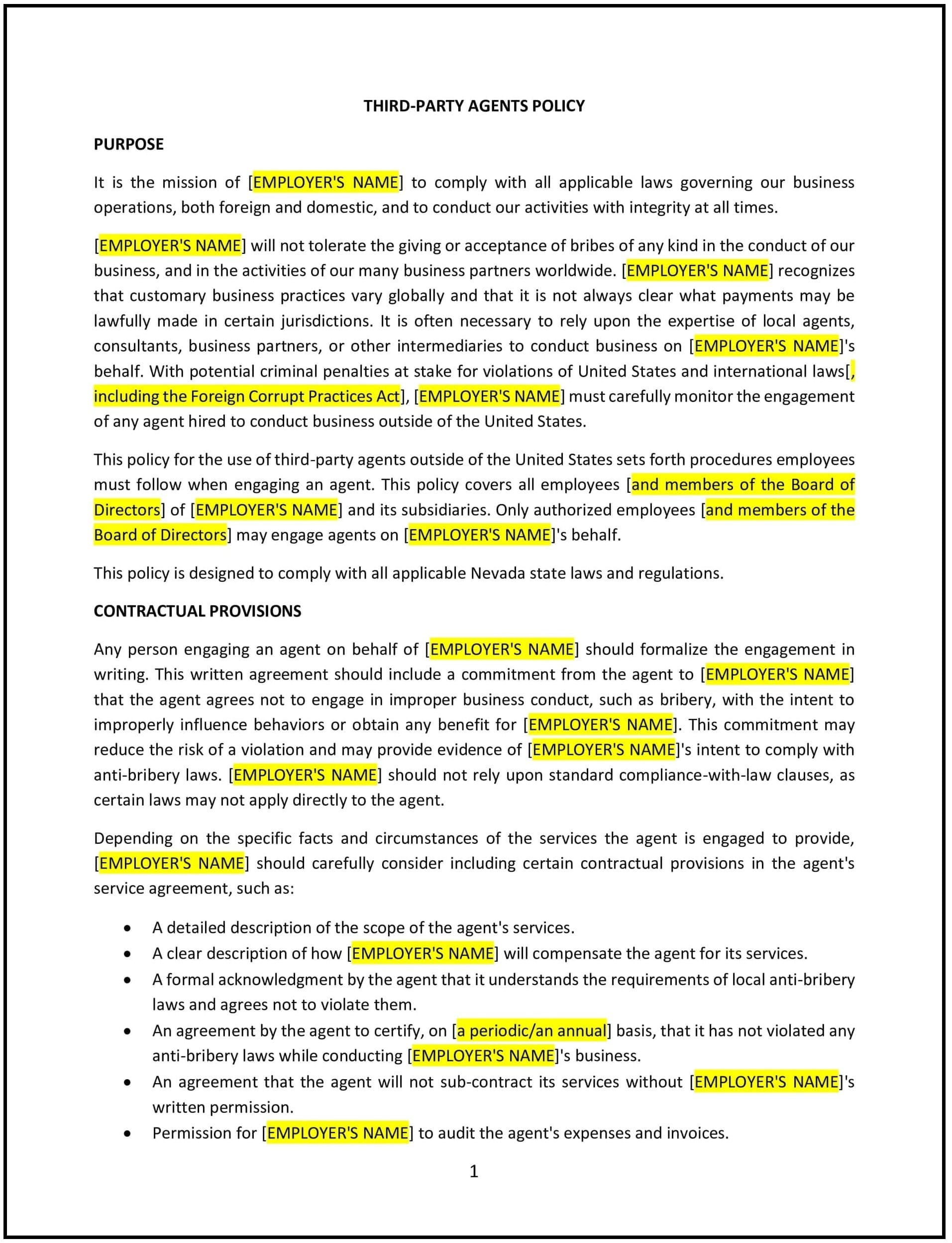Got contracts to review? While you're here for policies, let Cobrief make contract review effortless—start your free review now.

Customize this template for free
Third-party agents policy (Nevada)
This third-party agents policy is designed to help Nevada businesses manage relationships with third-party agents, contractors, and representatives effectively. It outlines guidelines for engaging, monitoring, and evaluating third parties to strengthen compliance with legal and ethical standards while safeguarding the company’s interests.
By adopting this policy, businesses can minimize risks, promote accountability, and maintain operational integrity when working with external agents.
How to use this third-party agents policy (Nevada)
- Define third-party agents: Clearly outline who qualifies as a third-party agent, such as contractors, consultants, distributors, or representatives acting on behalf of the company.
- Establish due diligence requirements: Specify the steps for evaluating potential third-party agents, including background checks, references, and verification of credentials.
- Set performance expectations: Outline the standards and expectations for third-party agents, including adherence to company policies, ethical practices, and Nevada laws.
- Include contract requirements: Require all third-party agents to sign formal agreements detailing their roles, responsibilities, and obligations.
- Monitor compliance: Implement processes for monitoring third-party activities, such as periodic audits, performance reviews, or regular reporting requirements.
- Address confidentiality and data security: Specify that third-party agents must protect company information and comply with applicable data security standards.
- Provide termination guidelines: Include conditions under which the relationship with a third-party agent may be terminated, such as non-compliance or breach of contract.
- Ensure training and support: Offer training or resources to third-party agents to familiarize them with the company’s policies and expectations.
Benefits of using this third-party agents policy (Nevada)
This policy provides several benefits for Nevada businesses:
- Promotes accountability: Ensures third-party agents act in alignment with company standards and values.
- Mitigates risks: Reduces exposure to legal, financial, and reputational risks associated with third-party actions.
- Enhances compliance: Aligns with Nevada laws and industry regulations, ensuring third parties meet legal obligations.
- Protects confidential information: Safeguards company data and intellectual property from unauthorized access or misuse.
- Supports performance management: Provides a structured approach to evaluating and improving third-party performance.
Tips for using this third-party agents policy (Nevada)
- Communicate the policy: Share the policy with all third-party agents during onboarding or contract initiation.
- Perform thorough vetting: Conduct comprehensive due diligence before engaging with third-party agents to verify their qualifications and reputation.
- Maintain detailed contracts: Ensure contracts include specific performance metrics, confidentiality clauses, and termination provisions.
- Monitor regularly: Review the activities and performance of third-party agents periodically to ensure compliance and alignment with business goals.
- Update as needed: Revise the policy to reflect changes in Nevada laws, company operations, or industry standards.